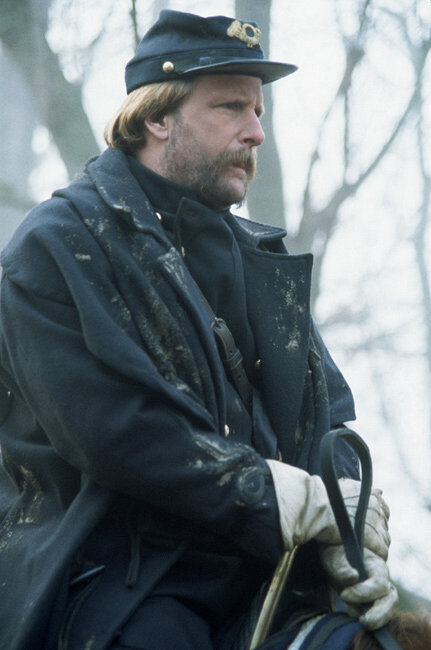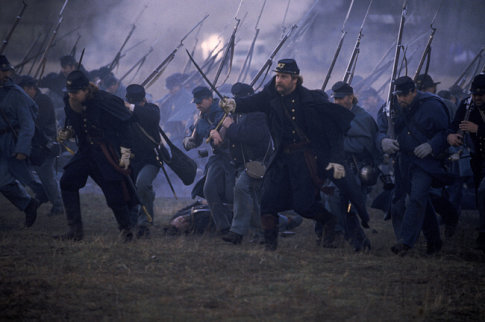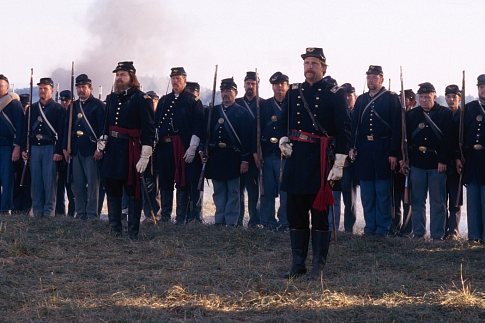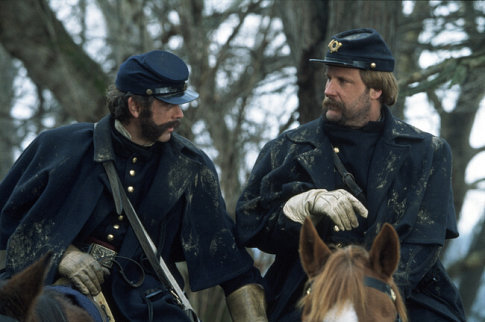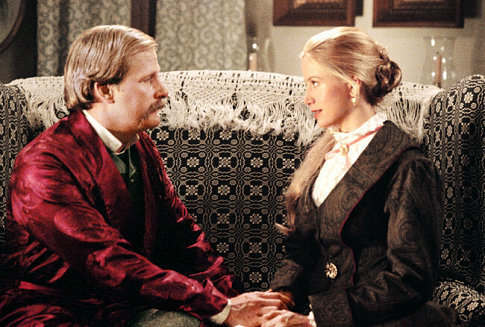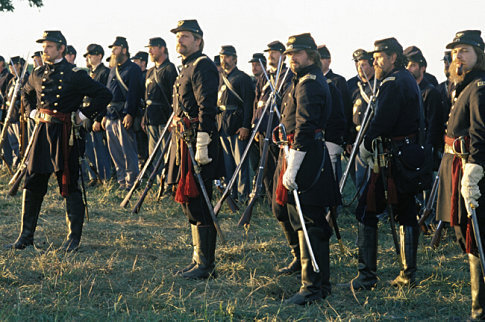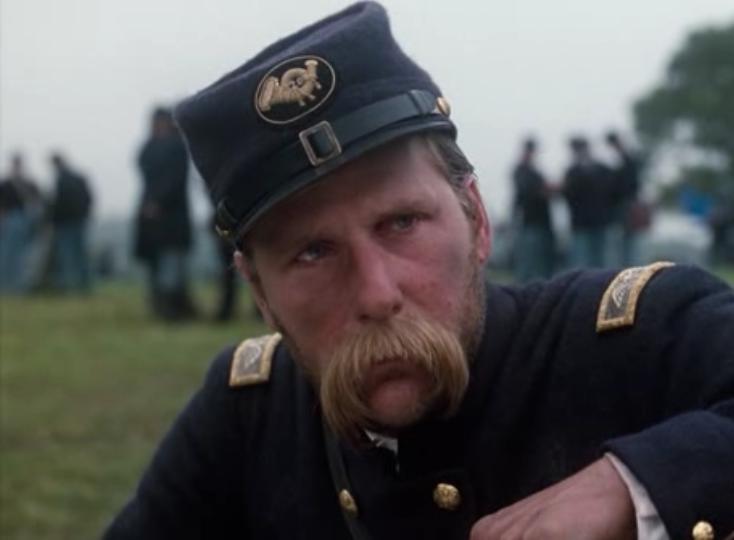Joshua Lawrence Chamberlain was a professor at Bowdoin college at the beginning of the Civil War. Eager to get involved with the fighitng. he asked his college for leave to take up a commission in the Union Army. When he was refused, he immediately went on sabbatical, whereupon he joined the 20th Maine. He would eventually end up a colonel by 1863,...
Show more »
Joshua Lawrence Chamberlain was a professor at Bowdoin college at the beginning of the Civil War. Eager to get involved with the fighitng. he asked his college for leave to take up a commission in the Union Army. When he was refused, he immediately went on sabbatical, whereupon he joined the 20th Maine. He would eventually end up a colonel by 1863, where he would lead the 20th Maine engaged on Little Round Top at the Battle of Gettysburg. Here, the 20th Maine bore the brunt of Lee's assault to outflank the Union troops defending the city. After enduring assault after assault, Chamberlain, his men exhausted and their ammunition almost spent, ordered a bayonet charge into the assaulting 15th Alabama Infantry, shattering the unit, capturing numerous Confederate prisoners and saving the position, and perhaps the battle, for the Union. After the battle, Chamberlain contracted malaria and was invalided briefly, before rejoining the Union forces for the siege of Petersburg. Although grievously wounded (he would be shot through the hip), he stayed at his post and urged his men not to retreat. He survived his wounds, and returned to service, now a Major General, in time to fight in the last battles of the war, and was a witness at Lee's surrender of the Confederate Army to Grant at Appomattox. Chamberlain was selected to lead the acceptance of surrender of the Confederate troops, and as a sign of respect, had his men stand at attention and shoulder arms as a salute to their erstwhile foes. Chamberlain would return to Bowdoin after the war, and would eventually become president of the college. He would die as a result of his wounds in 1914, shortly before the beginning of World War One.
Show less «

